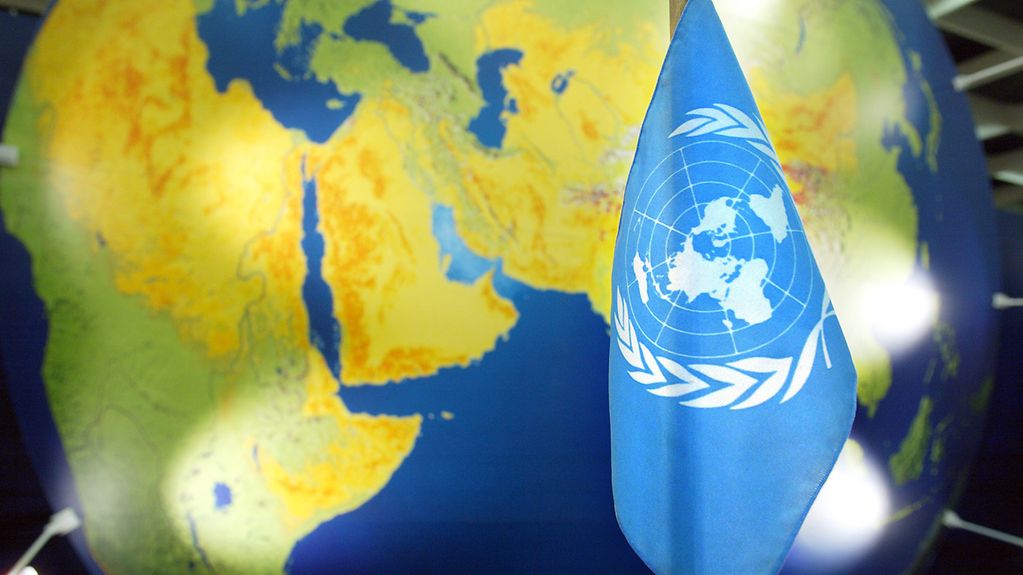Today’s Cabinet meeting
The Federal Government on Wednesday adopted a new national Action Plan to implement the UN Agenda “Women, Peace and Security”. Women’s participation in crisis prevention and in peace processes and their protection against sexual violence in regions of conflict is to continue to be further enhanced.
4 min reading time

United Nations Resolution 1325, adopted in 2000, enhances the role of women in peace-building and security processes
Photo: Thomas Imo/photothek.net
Even today, women are all too often not involved in formal peace negotiations. That is why Germany is working in crisis regions, within multilateral organisations and at regional level to implement the UN Agenda “Women, Peace and Security” which was adopted as Resolution 1325 by the United Nations Security Council.
Involving women increases the chances of achieving sustainable peace
Between 1992 and 2019 an average of only 13 per cent of negotiators in peace processes were women – although studies have shown that involving women increases the chances of achieving sustainable peace and leads to agreements which incorporate more rules which benefit women and men in equal measure.
Implementing the UN Agenda “Women, Peace and Security” serves to promote women’s human rights and to achieve gender equality, thereby helping to create peaceful and stable societies.
The third Action Plan which the Federal Government has now adopted to implement the UN Agenda sets various priorities. The four most important areas addressed in the Agenda are conflict prevention, women’s participation in peace processes, protection against sexual violence, and supporting victims and survivors and increasing women’s participation in post-conflict reconstruction. Further, the Agenda is to be publicised more widely both in Germany and around the world and is to become more firmly established in the work of the Federal Government.
Negative impact of coronavirus pandemic on situation of women in crisis regions
In addition, the Federal Government today adopted the Implementation Report on the Second Action Plan for Women, Peace and Security for the period 2017 to 2020.
The Implementation Report describes the Federal Government’s goals and measures which contributed, in the period under review (2017 to 2020), at the multilateral, bilateral and national level to implementing the UN Agenda “Women, Peace and Security”. It presents key developments in regard to Germany’s peace and security policy, development policy and humanitarian assistance in this field. It also addresses current challenges, such as the reversal of trends at international level in regard to women’s rights and the drastic consequences of the coronavirus pandemic for the social and economic situation of women in crisis regions.
20th anniversary of adoption of UN Resolution 1325
When the United Nations Security Council adopted Resolution 1325 on 31 October 2000 – a Resolution which dealt with peace and security processes – it was heralded as a major step forward. For the first time the Security Council confirmed that women need to be involved in bringing about and maintaining peace. Conflict prevention, peace processes and post-conflict reconstruction were thus recognised as a woman’s and thus as a human right. And the Security Council for the first time made it clear that sexual and gender-based violence is a crime which has to be systematically punished and eliminated.
The Agenda “Women, Peace and Security” aims to create peaceful and stable societies in which human rights are fostered by women and gender equality. By adopting Resolution 1325 on Women, Peace and Security on 31 October 2000, the United Nations Security Council for the first time acknowledged that women need to be involved in bringing about and maintaining peace. Participation and being involved in conflict prevention, peace processes and post-conflict reconstruction was thus understood as a woman’s right. The outlawing under international law of conflict-related sexual and gender-based violence was re-affirmed. Over the course of the past 20 years the United Nations Security Council has adopted a further nine Resolutions which refine and expand on the Agenda “Women, Peace and Security”.
The four pillars of the Agenda are as follows:
1. Participation: Women are to be equally represented at all levels of decision-making in national, regional and international institutions and mechanisms for the prevention, management and resolution of conflicts;
2. Prevention: At its core the Agenda “Women, Peace and Security” is preventative in nature and calls for gender quality and gender awareness in crisis prevention;
3. Protection: The UN Member States are to implement measures to prevent and protect women against gender-based violence, to take decisive action to combat impunity and to protect victims and survivors;
4. Relief and recovery efforts: Responses to international conflicts are to be gender equitable and all parties to armed conflicts are to respect the civilian and humanitarian nature of refugee accommodation and settlements. Humanitarian actors are also to take account of gender-based needs and skills when these are being set up.